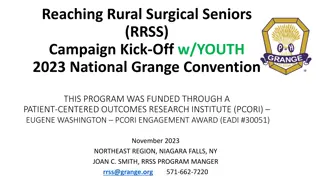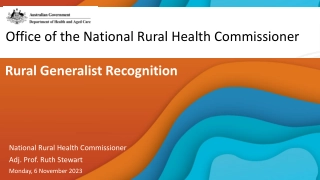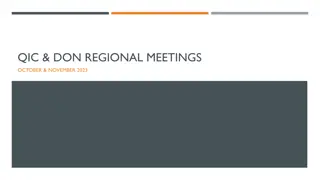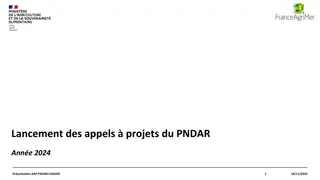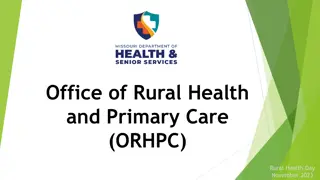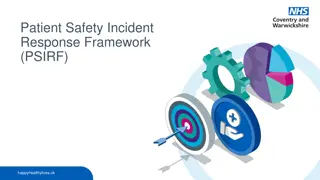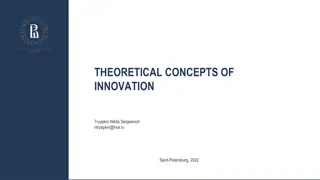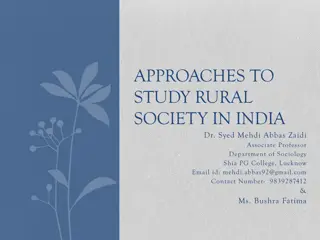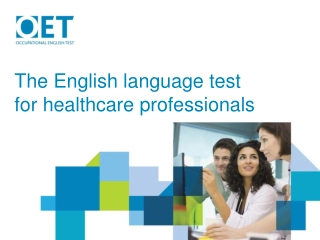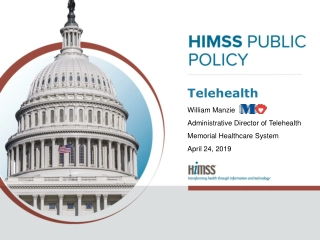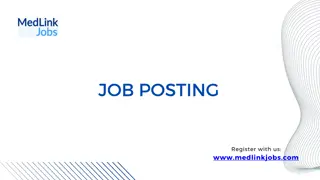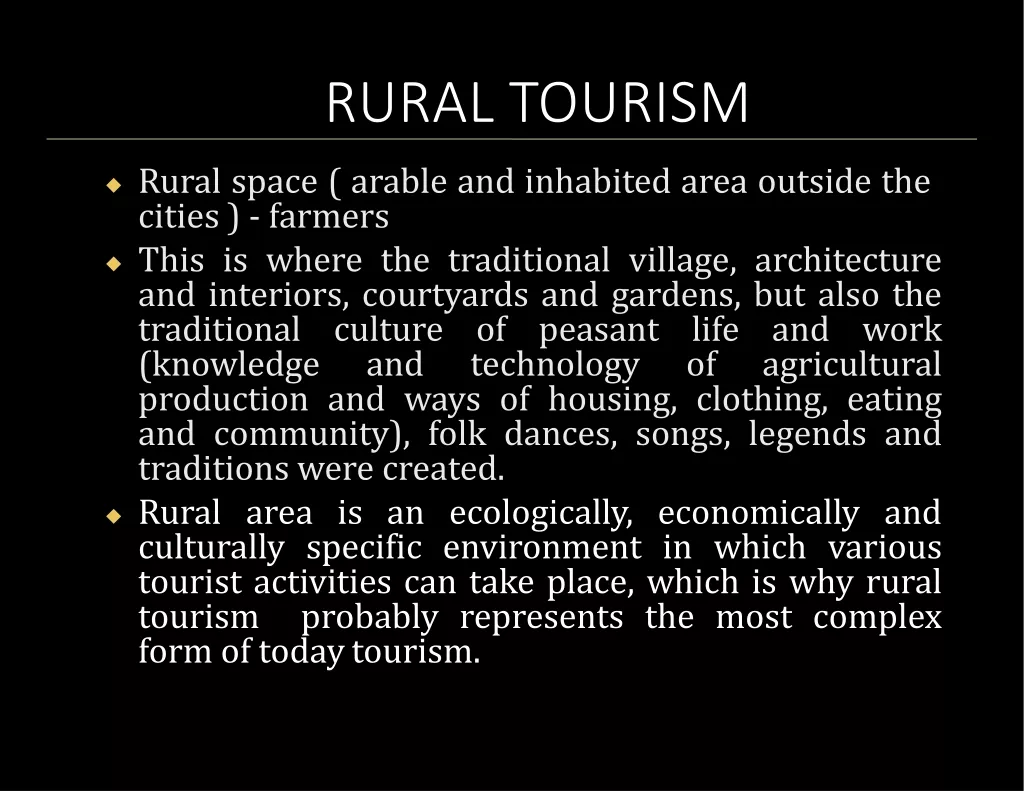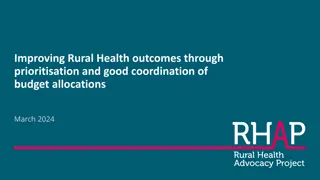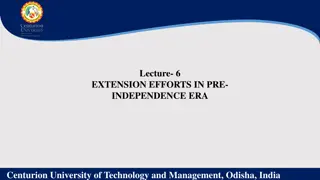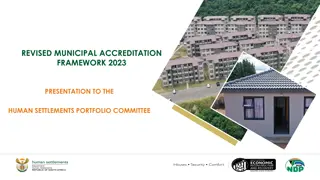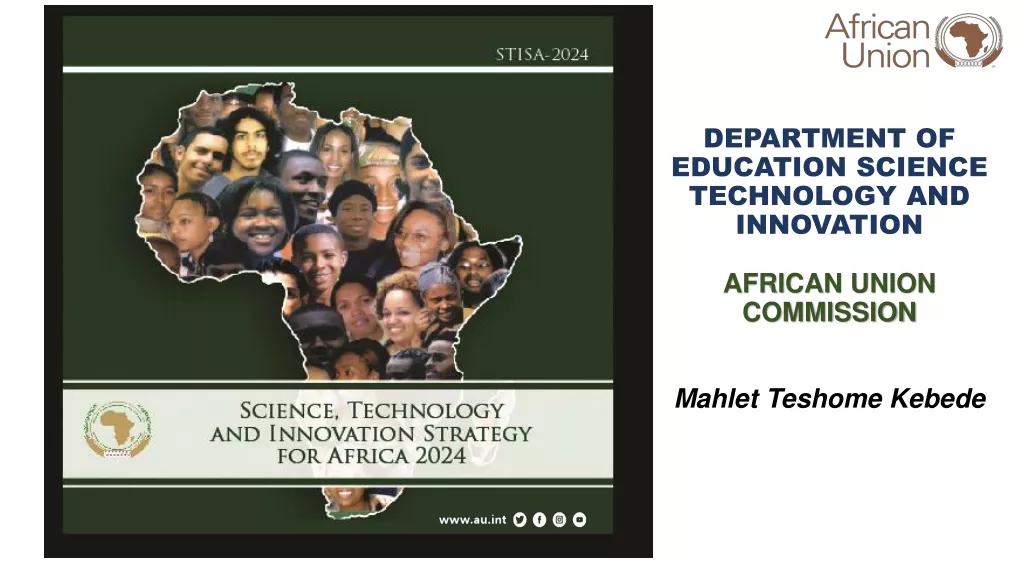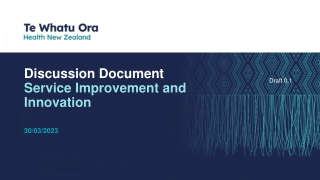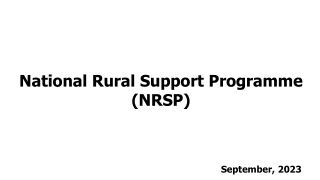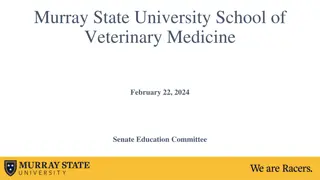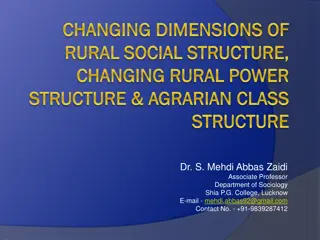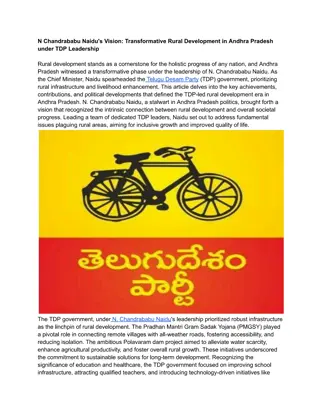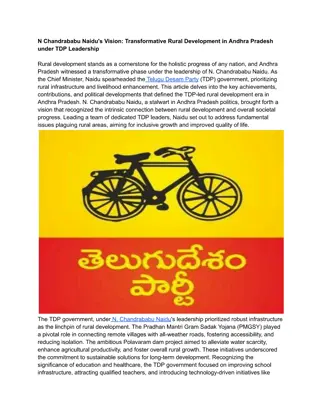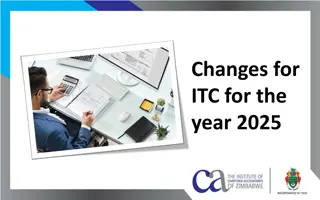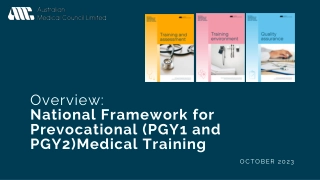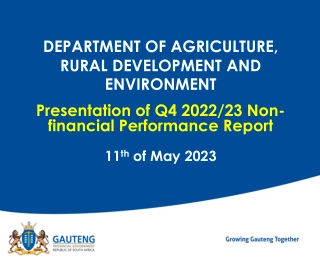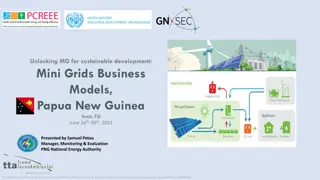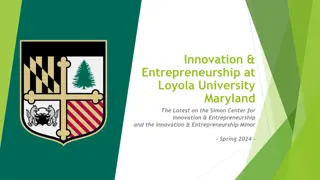Conceptual Framework for Healthcare Innovation in Rural Areas
Explore a conceptual framework integrating home care and mobile health services for poverty alleviation and rural development in African regions. Addressing critical health challenges, this research aims to bridge healthcare disparities and promote rural development, focusing on innovative approaches and the intersection of health and wealth.
Conceptual Framework for Healthcare Innovation in Rural Areas
PowerPoint presentation about 'Conceptual Framework for Healthcare Innovation in Rural Areas'. This presentation describes the topic on Explore a conceptual framework integrating home care and mobile health services for poverty alleviation and rural development in African regions. Addressing critical health challenges, this research aims to bridge healthcare disparities and promote rural development, focusing on innovative approaches and the intersection of health and wealth.. Download this presentation absolutely free.
Presentation Transcript
Home Care and Mobile Health Services Provision for Rural Dwellers: A Conceptual Framework of Poverty Alleviation and Rural Development Sunday Olaleye1| Ismaila Sanusi2| Jari Salo3 | Esther Olaleye4 1School of Business, Jamk University of Applied Sciences, Jyv skyl , Finland, sunday.olaleye@jamk.fi 2 School of Computing, University of Eastern Finland, ismaila.sanusi@uef.fi 3 Department of Economics and management, University of Helsinki, Helsinki, Finland, jari.salo@helsinki.fi 4Health and Welfare, Novia University of Applied Sciences, Vaasa, Finland, esther.olaleye@edu.novia.fi
Introduction Research Objectives Literature Review Methodology Results Conclusions
Introduction The severity of road traffic injuries and lackadaisical attitude to health care are highly prevalent in theAfrican region. The rural dwellers in these regions depend on traditional medication and alternative medicine to tackle maternal mortality, newborn and child mortality, communicable diseases, non-communicable diseases, mental health, substance abuse, road traffic injuries and death from environmental pollution. These health-related challenges are part of the 17 Sustainable Development Goals accepted by the world leaders in 2015. A broad connection between health and wealth calls for the quick attention of policymakers and health practitioners.
Research Objectives To develop a conceptual framework that integrates home care and mobile health services for poverty alleviation and rural development. To contribute discourse on innovative approaches for addressing healthcare disparities and promoting rural development, particularly in the context of poverty alleviation. to the academic
Literature Review Healthcare characterized by continuous advancements and evolving practices. A comprehensive understanding of these disciplines requires exploring various research areas that address critical questions and challenges. This essay provides a structured literature review summarising key findings and insights from recent studies across diverse healthcare and nursing topics. Each study offers valuable contributions to the field and collectively contributes to understanding the multifaceted nature of healthcare and nursing practices. and nursing are dynamic fields
Methodology The study adopts the six steps of methodology suggested by Marek (2015). First, we conducted a literature review on mobile health and rural nursing. Second, we embarked on a thoughtful analysis to include influential materials not found in the literature reviewed. Third, we analysed the external influences and grouped them accordingly. Fourth, we integrate the factors into a conceptual model showing external and internal factors. Fifth, we analysed the role of mobile technology in rural nursing and finally developed practice recommendations.
Home Care and Mobile Health Framework According to Grams and Christ (1992), critical social theory (CST), as a form of science and inquiry, examines relationships of power and the underlying structures in society that produce population inequalities. . Rogers characteristics of innovations that affect their rates of adoption: 1) relative advantage, 2) compatibility, 3) complexity, 4) trialability, and 5) observability. Rural Nursing Theory by Long and Weinert (1989) claims that rural healthcare perspectives vary significantly from those in urban and suburban areas. argues that there are five key
Insights from Integrated Framework Acceptance of Mobile Health Care: Important Dependent Factors Effect ofAge on Usage. The Needs Factor of the Users. Experience with Technology/Mobile Health Care Cognitive Ability and Education of Users Culture of Users.
Future of Home Care and Mobile Health Services Personal health care services. Chatbot health care services. Robot health care services. Predictive health care services. Smart Nurses, Doctors, and smart Patients. The future health care services are moving towards self-service, aided service with artificial intelligence intervention.
Conclusion Home care and mobile health services will lead to easiness and convenience for rural dwellers. It will give assurance as they have access to treatment in the confines of their homes and the language they understand with the aid of smart nurses and smart technologies. Home care and mobile health services will help decongest the seemingly crowded centres. It will alleviate poverty in rural communities by reducing the sickness productivity. Medically excluded people due to their habitation remoteness will be reached and pave the way for mobile medical service accessibility, and this development will drastically reduce the mortality rate. burden hampering work
Managerial Implications This study concludes by calling for private and public funders to collaborate on advancing models of care for innovative solutions that will enable nurses to improve health and health care. The study recommends that healthcare organisations should support nurses in taking the lead in developing and adopting innovative patient-centred care models. Nurses and other healthcare providers must champion the mHealth program with their colleagues and patients. The government is challenged to identify, develop, implement, and evaluate innovative solutions to manage chronic disease and other illnesses. The study has practical practitioners, African governments, non-governmental agencies, and society. relevance to medical
Study Limitations Conceptual papers play a vital role in advancing knowledge and theory development but not without limitations. This study focussed on a single country (Nigeria). This study evidence. lack empirical
Future Studies Future research endeavours should extend beyond study and adopt analysis of home care and mobile health services countries. An empirical study with a mixed methodology would enhance the conceptual providing valuable insights. a single-country a multi-group across African significantly paper,
Future Research Questions to Explore Why is artificial intelligence, including robotics, chatbots, machine learning, and deep learning, necessary for the future of home care and mobile health services? How can the government initiate and influence the diffusion of smart healthcare, smart medical practitioners, and smart patient engagement? What strategies can governments and medical stakeholders employ to establish an ecosystem of smart healthcare in rural areas, facilitating consultation and collaboration? How can governments effectively address the barrier of medical inequality in rural areas by integrating emerging technologies? What impact can blockchain technology have on the payment system for healthcare services?


